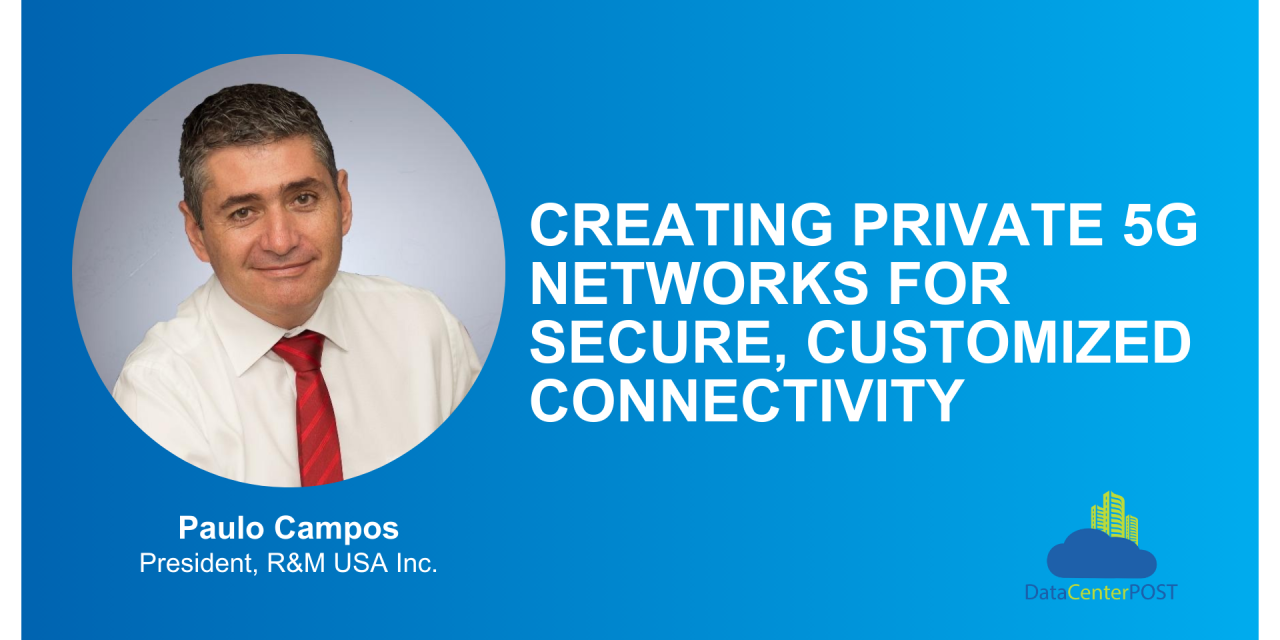Originally posted on Data Center POST.
Businesses and public sector entities increasingly seek secure, reliable, and high-performance connectivity solutions, and private 5G networks are emerging as an ideal solution. The U.S. private 5G market is expanding rapidly, with forecasts predicting $20 billion by 2030. As adoption accelerates, private 5G is expected to play a crucial role in the future of enterprise digital transformation in the U.S.
Private 5G is a dedicated, site-specific cellular network that provides secure, high-speed connectivity for organizations at locations such as factories, hospitals, military bases, or campuses. Unlike public 5G, operated by telecom carriers and shared by consumers, private 5G networks are directly managed by the deploying organization or their managed service providers (MSPs). This allows precise optimization of speed, bandwidth, and latency to meet specific operational demands, enhancing reliability, security, and performance and support for mission-critical applications with dedicated spectrum, automation, and ultra-reliable connectivity. Sensitive information remains within the organization and latency can be optimized to ultra-low levels (<5ms), unlike public 5G, where performance varies based on network conditions, congestion, and resource sharing.
Additionally, private 5G networks can operate on licensed, unlicensed, or shared spectrum, such as CBRS (Citizens Broadband Radio Service) in the U.S., whereas public 5G is limited to licensed spectrum owned by telecom carriers. This flexibility enables private networks to implement tailored solutions optimized for high-speed data transmission, ultra-low latency, and enhanced security through dedicated resources and customized operational policies.
Applications
Private 5G networks are already demonstrating significant value across various sectors. In manufacturing, companies are utilizing private 5G for real-time automation, robotics, automated production management, and predictive maintenance powered by AI analytics. Companies like Ford and BMW are leveraging private 5G to optimize factory production. Healthcare organizations deploy private 5G in smart hospitals, enabling advanced applications like real-time patient monitoring, robotic-assisted surgeries, AR/VR-based training, telemedicine, and remote diagnostics. The U.S. Department of Veterans Affairs (VA) is testing private 5G to improve patient care.The transportation and logistics sectors use private 5G networks for efficient autonomous vehicle coordination, intelligent port operations, and real-time asset tracking.
Retailers and smart city developers are experimenting with private 5G to power AI-driven checkout systems, smart inventory tracking, and intelligent traffic management systems. Warehousing and logistics can also benefit: private 5G enables automated inventory tracking and streamlined warehouse operations. In transportation and ports, private 5G enhances autonomous vehicle coordination and real-time tracking. The energy and utilities sector is a key adopter, leveraging private 5G for smart grid monitoring, preventing blackouts, and real-time pipeline and oil rig surveillance. In government and defense, private 5G is being deployed for secure military communications, encrypted drone operations, and public safety networks. The U.S. Air Force is currently rolling out private 5G on military bases.
To continue reading, please click here.

